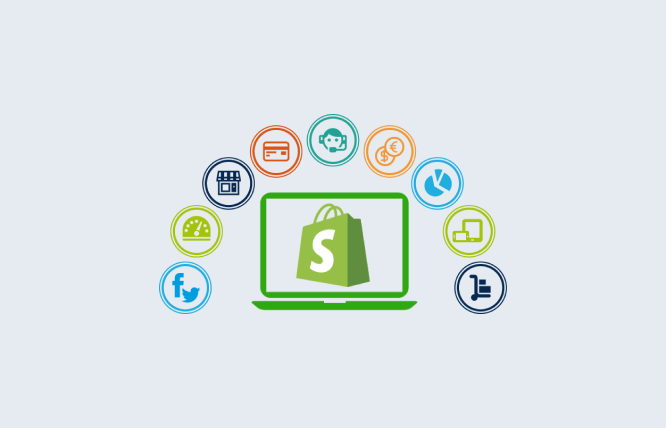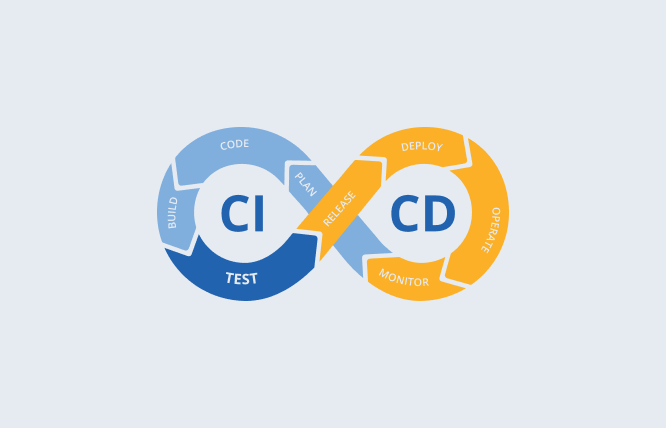Introduction
This blog will state why Shopify is still worth for e-commerce startups in 2025. It will discuss the following points:
Today, many entrepreneurs are confused about Shopify. They have trouble understanding – Is Shopify Still Worth for e-commerce Startups. Well, the good news for them is that the answer here is a big “YES” – at least for most of the e-commerce ventures. Shopify is commonly regarded as a diversified, user-friendly platform that is great for businesses of different types and sizes. It presents a mixture of things, such as a supportive ecosystem, scalability, and robust features. This allows it to become an ideal choice for today’s online retailers of various sorts.
On a side note, if you are associated with an e-commerce business and are looking to improve your business activities, then you should do some research regarding Shopify web development services and even an e-commerce website design and development company that serves you best.
Is Shopify Still Worth for e-commerce Startups? – An Assessment
Let’s answer this question in greater detail. First, here is a brief take on Shopify for those who are still unfamiliar with it. Shopify is generally regarded as an all-encompassing e-commerce platform that can be easily managed and set up. This means that it is a wonderful choice for businesses that have rather limited in-house technical help.
Shopify’s point-of-sale allows users to sell products with the assistance of an online shop, online marketplaces like eBay and Amazon, and social media such as Facebook. Additionally, it offers users a monthly subscription. This also includes admin panel access, where a user has the option of adding products, processing orders, and entering the store info.
All of the information stated above perfectly answers the question “Is Shopify Still Worth for e-commerce Startups?”
Shopify – Pros and Cons
Any person or business entity that wants to make good use of Shopify should first understand its pros and cons. Let’s look at these in some detail:
| Pros | Cons | |
| App Marketplace | There are more than 8000 apps for e-commerce solutions | Dependency on apps for high-level features could inflict integration challenges and additional costs |
| Interface | Effortless navigation with a highly intuitive design. This offers ease throughout the learning curve | Compared to highly evolved platforms such as Magento, there is limited customization |
| Payment Solutions | A robust integrated ecosystem that offers various payment methods | More fees for utilizing external payment gateways |
| Scalability | A reliable infrastructure that is ideal for both business growth and high traffic | Higher-tier plans required for higher scalability features |
| Security and Hosting | Unlimited hosting coupled with enhanced security aspects | Limited control over backend code and the server |
| Inventory Management | Well-ordered management and tracking throughout a host of locations | Demands third-party apps for advanced inventory features |
| SEO Capabilities | Reliable built-in SEO tools | Limited customization associated with advanced SEO settings and URL structure, demanding additional expertise or apps |
| Multi-Channel Selling | Widens the already existing customer base by taking assistance from different platform integrations | Various complexities when synching and managing through a host of channels |
An Overview of Shopify Pricing Plans
If you are still evaluating whether Shopify is best for your business, you must consider its pricing structure throughout its plans. If you have limited familiarity with it, then the good news is that these are rather easy to understand. For starters, note that Shopify presents a host of tiers, and each of them is created to serve businesses of various needs and sizes. Of course, each tier corresponds to its own costs and features. These are the tiers:
- Basic Shopify
- Shopify
- Advanced Shopify
Take note of the following points, as these will let you better select the right plan:
A Proper Knowledge of Your Business Needs
It is truly unfortunate that a great number of today’s businesses fail to do a proper assessment of themselves. This is detrimental to them in both the short and long run. It is a universally accepted fact that when a business is better aware of its overall limitations, it will be in a better position to make the right investment calls. On top of this, business owners should also understand that getting to know their business entity better can actually be an easy task. However, it may require them to invest a particular degree of time and other investments.
Here, it is important for a business to look at its overall size, projected growth, and other requirements. These requirements include international selling capabilities, reporting needs, staff accounts, and inventory locations. Of course, all of this assessment can be easily done if the business has taken steps to modernize itself. Here, a mere digitalization process may not be enough, and the business may be required to take lessons from its existing competitors. A better knowledge of its competitors will even allow it to operate with optimum efficiency when it will have to face stiff competition throughout its industry.
Drawing Parallels between Features and Requirements
Every Shopify plan is unique in its own sense, as it presents different features. For instance, if you are associated with a business that demands multiple inventory locations or advanced reporting, your business will likely do well with the Advanced Shopify plan – this compared to the Basic Plan.
But there is one critical error that many go on to make, especially those that ask the “Is Shopify Still Worth for e-commerce Startups?” question. This is a close look at all of the contents of a Shopify plan. The good news is you will easily go through this information. If possible, discuss all the right stakeholders before going with a particular Shopify plan.
Budgeting
It is important for every potential Shopify plan user to balance the monthly subscription expenses with the overall value expected to be taken from the platform. Here, there is no ideal case. Therefore, you should expect that compromises may need to be made. Furthermore, the following is some information regarding the Shopify plans.
| Plan | Monthly Cost | Staff Accounts | Reports | Additional Features |
| Basic | $29 | 2 | Standard | Free of cost SSL Certificate, Discount Codes, Manual Order Creation |
| Shopify | $105 | 5 | Professional | Better Shipping Discounts, Gift Cards |
| Advanced | $399 | 15 | Custom | Third-Party Calculated Shipping Rates, Advanced Report Builder |
Here is why Shopify Excels
The following are much-needed facts for e-commerce startups, which explain why Shopify excels:
App Marketplace
You will find more than 8000 apps at Shopify’s App Marketplace. This number is much higher than that of its competitors, such as Squarespace. The following are some of the app types that you can expect to find in the marketplace:
- Sales and Conversion Optimization
- Marketing and SEO
- Analytics and Reporting
- Customer Service and Engagement
- Inventory and Order Management
Many app users are concerned about whether the apps are routinely updated or not. Here, Shopify is taking concrete measures to address these concerns. As a result, you will notice that the apps get updated on a timely note.
User-Friendly Interface
These are just some of the highlights of the user-friendly interface:
- Intuitive design
- Drag and drop interface
- Ease with personalization
- Customizable templates
Many industry specialists believe that this user-friendly interface is one of Shopify’s biggest selling points. This point greatly matters for those who have just begun their e-commerce activities.
The Scalability Factor
These are the highlights of Shopify’s scalability:
- Advanced order management and inventory
- Reliable infrastructure that facilitates high traffic
- Optimized for worldwide reach
- Robust cybersecurity
- Multi-channel integration and worldwide expansion
Many businesses that have expanded their global footprint have come to commend the above-mentioned scalability features.
Concluding Remarks on “Is Shopify Still Worth for e-commerce Startups.”
There should not be any doubt in anyone’s mind regarding “Is Shopify Still Worth for e-commerce Startups?” On top of this, there is a huge likelihood that Shopify’s plus points will increase as time passes. This means all those e-commerce startups who are looking to create a global footprint have many reasons to cheer for. Additionally, those interested in making good use of Shopify should try to take a look at the services offered by a Magento store developer or even a custom woocommerce development. This could potentially make a business multiply its business profits.
Lastly, it is important to state here that Futurbyte is a well-reputed software development company that offers reliable solutions for today’s e-commerce startups.
Also Read:Hire Someone to build Shopify Store
Frequently Asked Questions
Sure, Shopify Payments is basically its built-in payment processor. This permits any entity to accept credit card payments straight from their store. Another thing is that it offers support for today’s major credit cards and presents competitive transaction fees. If you are a merchant, then you have the option to integrate third-party payment gateways.
Shopify is well-regarded for its user-friendly interface, integration with a host of tools and apps, secure payment processing, and customizable templates. Additionally, it offers 24/7 customer support for businesses of every size.
This question is often asked by those who want to market their brand name across a particular territory or even the entire world. The good news for all such individuals is that this can be done. This is because Shopify offers several built-in tools meant for email marketing, social media integration, and SEO optimization. Another important point to state here is that it offers reporting and analytics features. These will assist you to track your marketing campaigns and the overall performance.
Yes. This is because Shopify offers a host of tools that are meant for functions such as tracking stock levels, setting up automatic reorder points, creating inventory performance reports, and overall inventory management. If you are a merchant, then you also enjoy the option of integrating with third-party inventory management systems. This is beneficial as it will offer you advanced functionalities.
Have questions or feedback?
Get in touch with us and we‘l get back to you and help as soon as we can!



